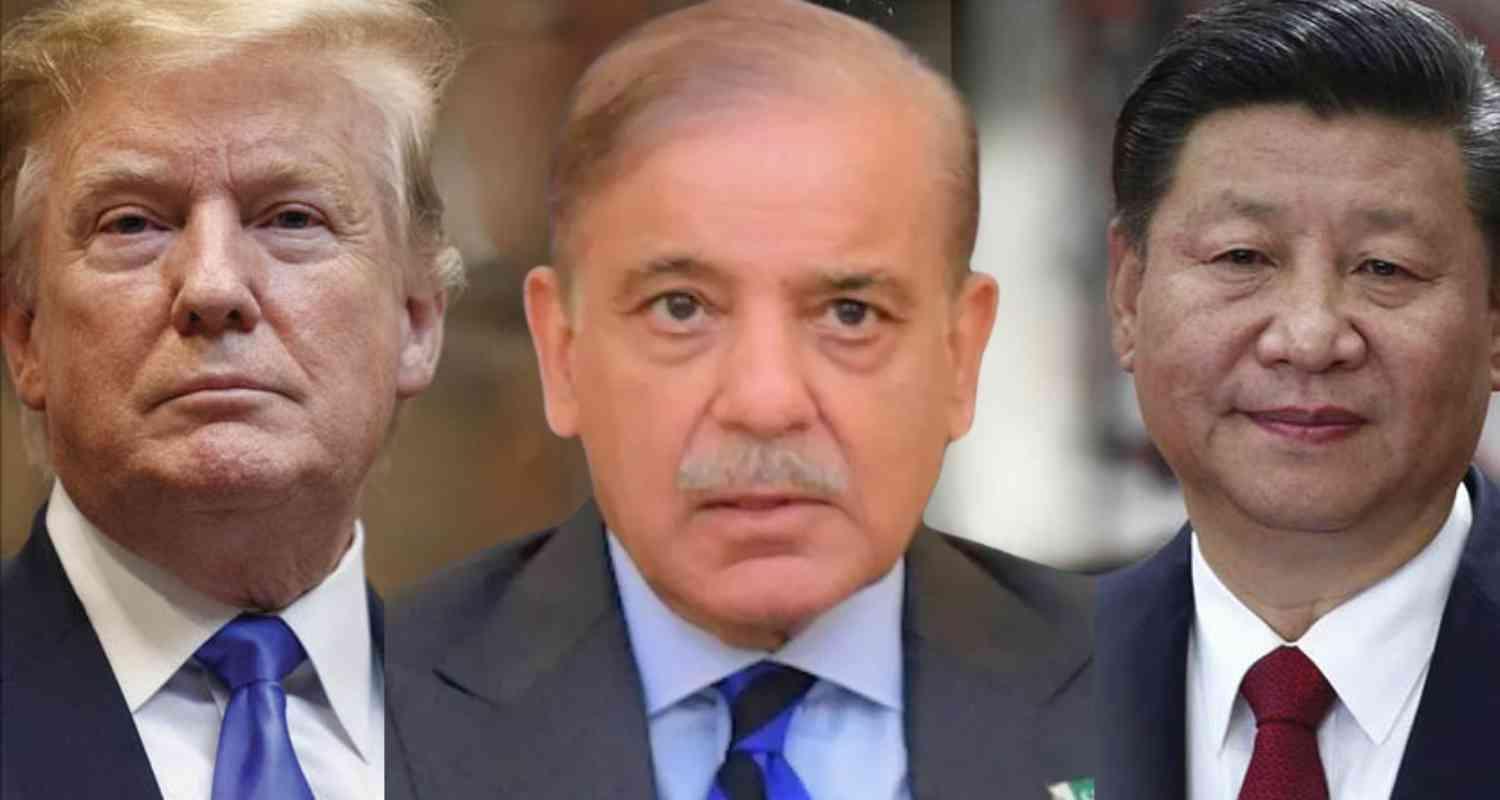Trending:
China unbothered about growing US-Pakistan closeness
Beijing's strategic experts are quite confident about Pakistan knowing its' limits in diplomatic closeness with the US.News Arena Network - Beijing - UPDATED: August 6, 2025, 05:01 PM - 2 min read

Donald Trump, Shehbaz Sharif, Xi Jinping.
The US under Donald Trump's administration is strengthening ties with Pakistan, which is traditionally a steadfast ally of China. But Beijing's strategic experts are quite confident about Pakistan knowing its limits in diplomatic closeness with the US.
Last month, Pakistani Army Chief, General Asim Munir, made his first official visit to China since assuming office as Field Marshal. His visit came shortly after a rare five-day trip to Washington, where he attended a private luncheon with Trump. That meeting culminated with the US President Trump announcing enhanced US-Pakistan cooperation in various fields, including an oil deal between the two nations. This visit of Munir led to alteration in American foreign policy, with implications not only for India but also China and the Middle East, claimed a recent "Economist" article.
During his time in Beijing, Munir met with Vice President Han Zheng, Foreign Minister Wang Yi and senior members of the People's Liberation Army (PLA), though not with President Xi Jinping. This contrasts with his predecessor, General Qamar Javed Bajwa, who met Xi during his 2018 trip to China.
While official readouts from Munir's meetings emphasised diplomatic niceties and reiterated strong bilateral ties, Beijing's perception of the Trump-Munir rapport remains unclear, especially given Trump's overt strategy to curb China's rise as a global power. China has its concerns considering the decades-long investment fostering relationship with the Islamabad, on all fronts.
Two Chinese senior strategic experts, for the first time, underscored China's view on the evolving Washington-Islamabad strategic paradigm in the broader context of Trump's geopolitical strategy.
"Pakistan will not develop its relations with the US at the cost of its relation with China. Pakistan will not be that easily hooked by Trump," Hu Shisheng, Director of the Institute for South Asian Studies at the China Institutes of Contemporary International Relations, stated.
Also Read: Donald Trump signs oil deal with Pakistan
Jesse Wang, a research fellow at Huaxia South Asia Economic and Cultural Exchange Centre of China, said "on the surface, Trump's candy to Pakistan looks like a disturbance to China, but actually, cannot affect the structural stability of the Sino-Pak relationship. US intervention has created short-term geopolitical noise but is unlikely to shake the foundation of China-Pakistan dependence. For Pakistan, 'make profits both ways' economically is a rational choice, but its security and infrastructure lifelines are tied to China closely, and the strategic balance has not tilted."
The experts contended that Islamabad would not separate in order to establish a new relationship of a similar nature because China-Pakistan ties are structurally much deeper.
Historically, Pakistan's ties with the US and China have largely unfolded in parallel over long periods without cancelling each other out, Hu said, in an apparent reference to Pakistan joining the American war against the then Soviet Union's occupation of Afghanistan in 1979 and the Afghan war thereafter.
"The China-Pakistan relationship is a unique bilateral bond that has withstood the test of time. Of course, the Trump team expects to see Pakistan getting away from China but Pakistan will not buy the story. Pakistan's strategic value or bargaining position with the US depends on Pakistan's close relations with China," Hu added.
"For China, the US-Pakistan cooperation has exposed the US' intentions in South Asia, and has also forced China to accelerate regional mechanism building. The Sino-Pak relationship is like an 'alloy steel' -- external pressure has instead prompted it to evolve into a higher strength and the US' wedge strategy will ultimately be constrained by Pakistan's balancing wisdom and the complex geopolitical reality in South Asia," Wang stated.
Meanwhile, when it came to speak on US-India new harsh policy, the Chinese experts think that the American policy is "still evolving". On Trump's rhetoric with threat to impose high tariffs on India, Hu said it does not signify that the Trump team denies India's geostrategic importance. Rather, it stems from the Trump administration's urgent desire for India to play a substantive role in bolstering the US supremacy and countering China's rise," he said.
Essentially, it reflects Trump's extreme frustration with India's insistence on "strategic autonomy", he said.
"Furthermore, this aligns with Trump's art-of-the-deal approach, which is, applying maximum pressure to secure desired concessions. If India holds firm with strategic resolve, Trump may well revert to a more conciliatory stance towards the country. After all, regarding constraining China's rise, the US harbours higher expectations for India than for its formal allies, recognising India's superior comprehensive strength for this role," Wang said.
Alternatively, India could pressure the US by accelerating rapprochement with China, he said. Wang said since the Clinton administration, as India's position in the US national security strategy has continuously risen, successive US presidents have shown increasingly refined strategic sensitivity in handling bilateral relations with India, but this trend is currently rapidly weakening.
Trump has completely abandoned the logic of "strategic altruism", marking a fracture in the "structural expectations" and a sharp turn in the "strategic dependence" in India-US bilateral interactions, which may prompt India to reassess the substantive value of its friendship with the US, he then added.
Also Read: US red carpet to Munir, much more than meets the eye

